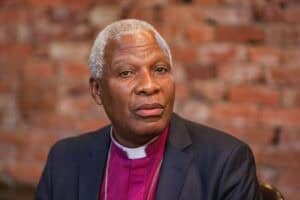This after an Oxfam report revealed that SA's three billionaires have the same wealth as the bottom 50% of the country’s population.

Inequality will continue to worsen in South Africa because government has kept its hands off the running of the country’s economy, leaving the plight of the poor at the mercy of the monopoly capital with their wealth accumulation agenda.
This was the view of Congress of South African Trade Unions (Cosatu) spokesperson Sizwe Pamla in an interview with The Citizen about the World Economic Forum annual meeting taking place in Davos, Switzerland, this week.
He was also reacting to an Oxfam report indicating that the world’s richest individuals control wealth equal to that owned by half of the globe’s poorest population.
Three South African billionaires have the same wealth as the bottom 50% of the country’s population.
Pamla said inequality was a global phenomenon because neoliberalism had extended its tentacles all over the world.
READ MORE: Cosatu ‘disgusted’ by wealth report, calls for international action
He said the majority of world leaders today, including those in South Africa, have moved back and given the private sector free rein to run the economy at the expense of the people.
Pamla said since the government was fence-sitting, there had been ongoing consolidation of the monopoly capital through mergers and acquisitions in the past few years to form more powerful companies.
In the process, bosses accumulate wealth through increased profits and huge salaries while workers struggled to make ends meet.
“To counter this, we need a South Africa where the state actively ensures that those on the periphery of the economy are able to participate in growing that economy,” Pamla said.
He suggested that South Africa needed to be a truly developmental state, with a development bank for the poor to access funding.
“How does a country of our size have no state bank?” Pamla asked. The government needed to be more active to develop the economy through empowering the majority, especially the working class people, he added.
He said the high levels of inequality and poverty were factors contributing to social instability in the world.
As a result, South Africa had to carry the burden to accommodate “fleeing” citizens from the SADC region.
He said political instability and conflict would escalate due to extreme poverty that South Africa was already experiencing.
“In fact, worldwide, there is ongoing xenophobia, economic-related protests or strikes and a swing towards right-wing politics due to economic depravity of the ordinary people,” he said.
For more news your way, follow The Citizen on Facebook and Twitter.






